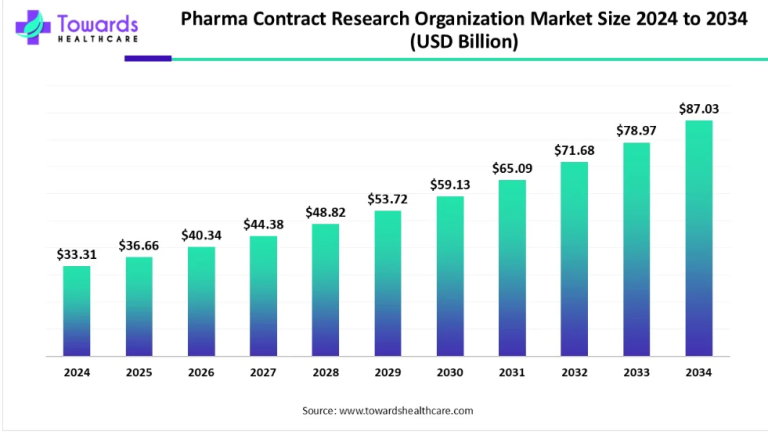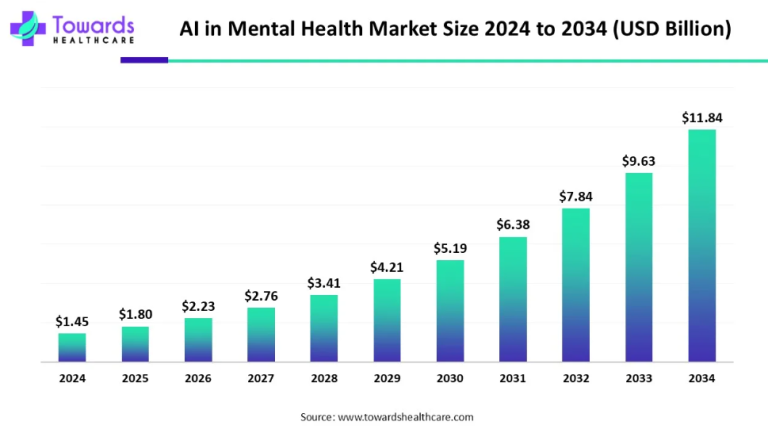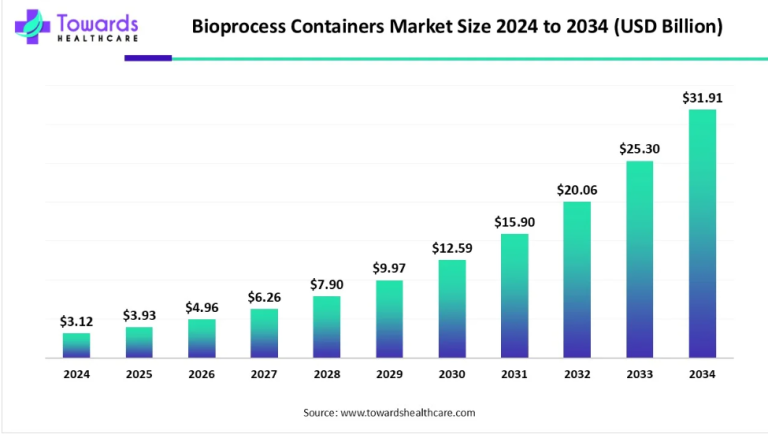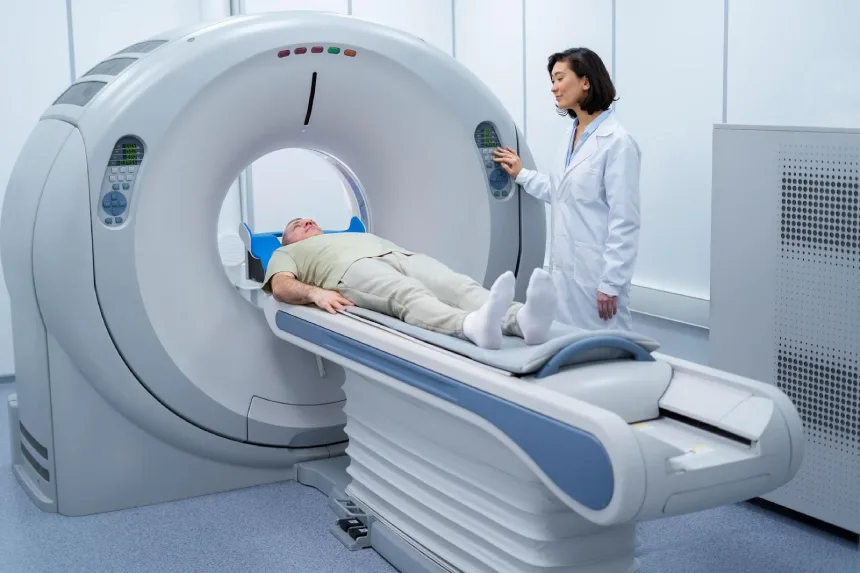
The medical imaging informatics market is experiencing significant growth, driven by advancements in technology and increasing healthcare needs. This dynamic sector is shaped by various factors, including the adoption of cutting-edge solutions, the challenges of security and automation, and new opportunities for innovation. The market is expected to grow substantially over the next decade, with a projected value of US$ 11.4 billion by 2034, up from US$ 5.5 billion in 2023, marking a compound annual growth rate (CAGR) of 6.85% from 2024 to 2034. Below, we explore the key drivers, restraints, and opportunities influencing this market’s expansion.
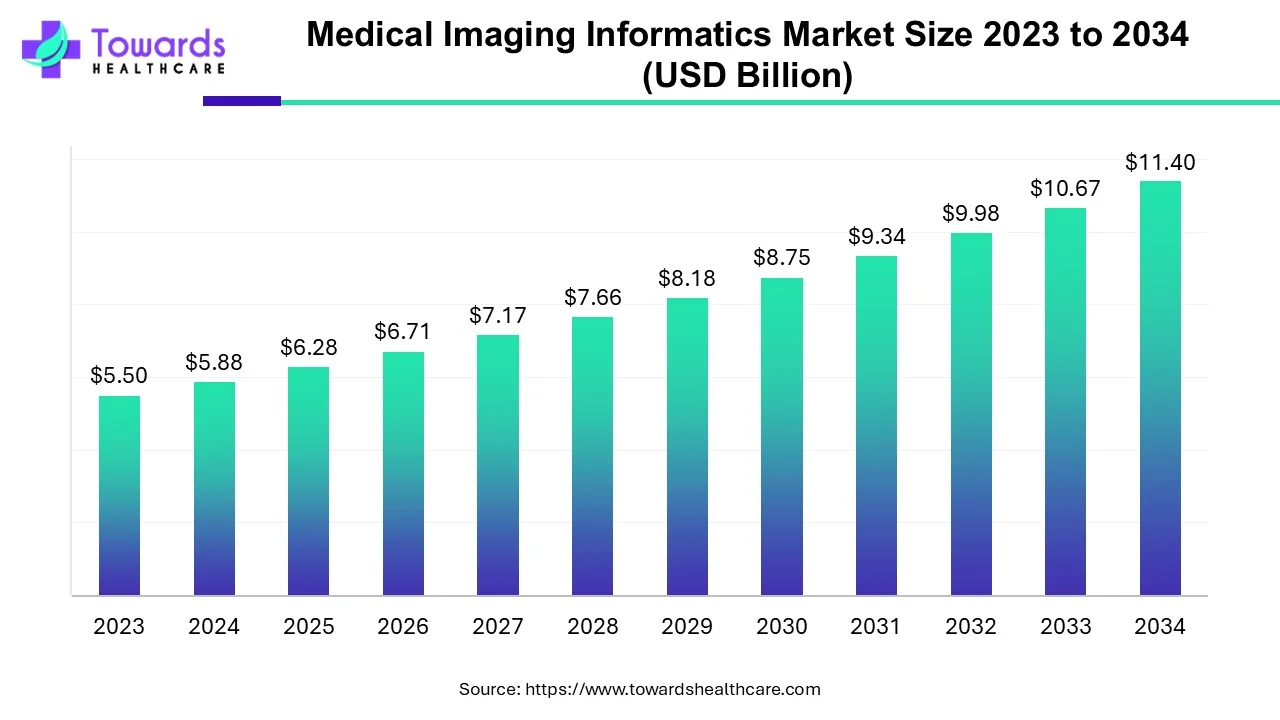
Get All the Details in Our Solution – Download Brochure @ https://www.towardshealthcare.com/download-brochure/5351
Driver: Clinical Data Repositories
One of the major drivers behind the growth of the medical imaging informatics market is the increasing use of clinical data repositories. These repositories are instrumental in consolidating medical data from a range of sources, such as electronic health records, radiology and pathology archives, biospecimen repositories, tumor registries, genomic sequencing devices, and clinical trial management systems. By bringing together this wealth of data, clinical data repositories enable efficient tracking and management of patient information across clinical sites and research institutions.
The integration of these data management systems facilitates better decision-making and research capabilities. Healthcare providers and researchers can access comprehensive patient histories, track disease progression, and develop targeted treatment plans. Moreover, this centralization of data aids in advancing medical research and innovations, contributing to the broader adoption of medical imaging informatics across the healthcare industry.
Restraint: Clinical, Technical, Automation, and Security Challenges
While the market shows considerable promise, it also faces several challenges that could hinder its growth. One of the significant restraints is the clinical and technical challenges related to medical imaging operations. The accuracy and precision of imaging data are critical for effective diagnosis and treatment, but issues such as contamination of reaction components, calibration errors, and technical inconsistencies can undermine the reliability of results.
Additionally, the automation of these systems presents security challenges. As healthcare facilities increasingly rely on automated systems, concerns over data privacy, confidentiality, and system performance arise. The sensitive nature of medical data requires stringent security measures to protect against breaches and ensure patient trust. Furthermore, the high cost of advanced diagnostic equipment and imaging tests can limit access, especially in low-income regions, restricting the market’s reach and accessibility.
Opportunity: Advancements in Imaging Technology
The market is also being driven by significant advancements in imaging technology. Technologies such as molecular imaging, functional imaging, and high-resolution imaging systems are transforming the medical diagnostics landscape.
High-resolution imaging systems, including CT, MRI, and ultrasound, allow clinicians to capture highly detailed images, enabling them to detect even the smallest anatomical changes. These systems provide valuable insights into the structure of the body, enhancing diagnostic accuracy. On the other hand, functional imaging technologies like PET-CT, SPECT-CT, and diffusion MRI offer dynamic, real-time insights into the functioning of organs and tissues. This makes them invaluable in diagnosing and managing complex health conditions, such as cancer, neurodegenerative diseases, and cardiovascular disorders.
Moreover, molecular imaging continues to revolutionize oncology, neurology, and cardiology. This technology enables the detection of diseases at a cellular level, providing clinicians with critical information for early diagnosis, staging, and personalized treatment plans. The ongoing evolution of these imaging technologies ensures that medical imaging informatics will play an increasingly important role in patient care and clinical decision-making.
Companies, Achievements, and Updates
As the medical imaging informatics market grows, numerous companies are playing pivotal roles in shaping its future. These companies are focusing on enhancing their technological offerings and expanding their presence in the global healthcare landscape. Notable players are investing heavily in the development of more advanced imaging systems, secure data management solutions, and AI-powered tools that aid in diagnostic accuracy.
In 2023, the global medical imaging informatics market was valued at US$ 5.5 billion, with a forecast to expand significantly over the next decade. The adoption of emerging technologies, driven by the rising prevalence of health-related disorders, is contributing to the market’s rapid growth. Healthcare facilities are increasingly adopting advanced technologies to capture, store, and manage patient data more efficiently, which is critical for supporting innovations in medical diagnostics and treatment.
The ongoing advancements and the growing demand for medical imaging solutions are poised to propel this market forward, ensuring that companies in the sector continue to push the boundaries of what’s possible in healthcare technology.
Our Table of Content (TOC) covers key healthcare market segments, materials, technologies and trends—helping you navigate market shifts and make informed decisions: https://www.towardshealthcare.com/table-of-content/medical-imaging-informatics-market-sizing
Invest in Our Premium Strategic Solution @ https://www.towardshealthcare.com/price/5351
We’ve prepared a service to support you. Please feel free to contact us at sales@towardshealthcare.com
Web: https://www.towardshealthcare.com
Visit Dental Specifics: https://www.towardsdental.com
Get the latest insights on industry segmentation with our Annual Membership: Get a Subscription
For Latest Update Follow Us: https://www.linkedin.com/company/towards-healthcare
